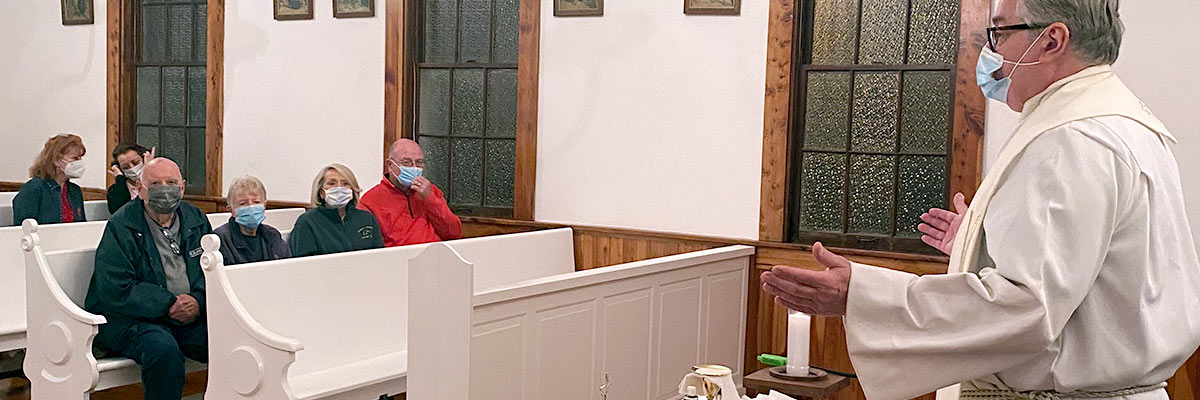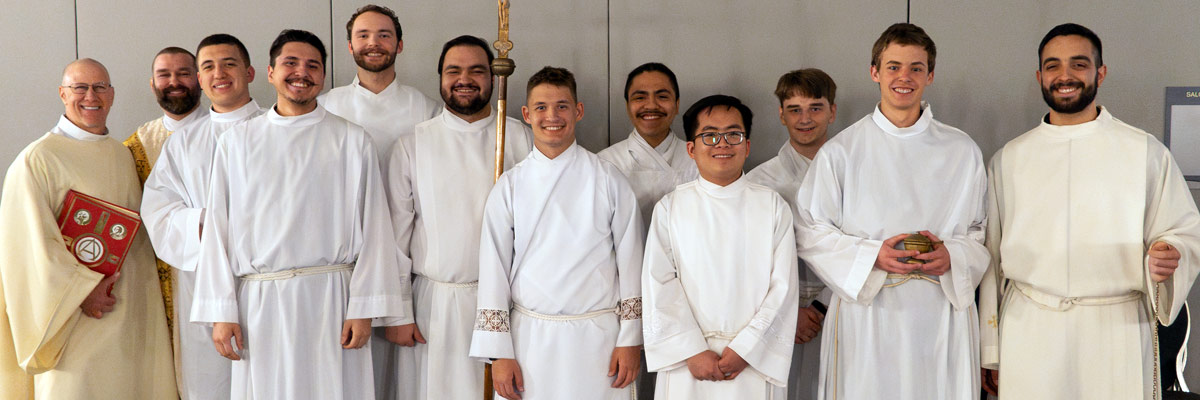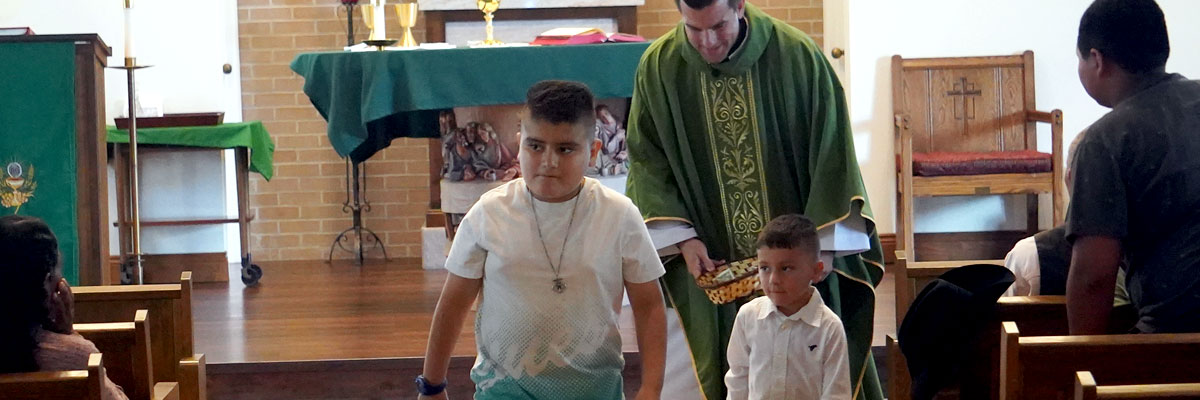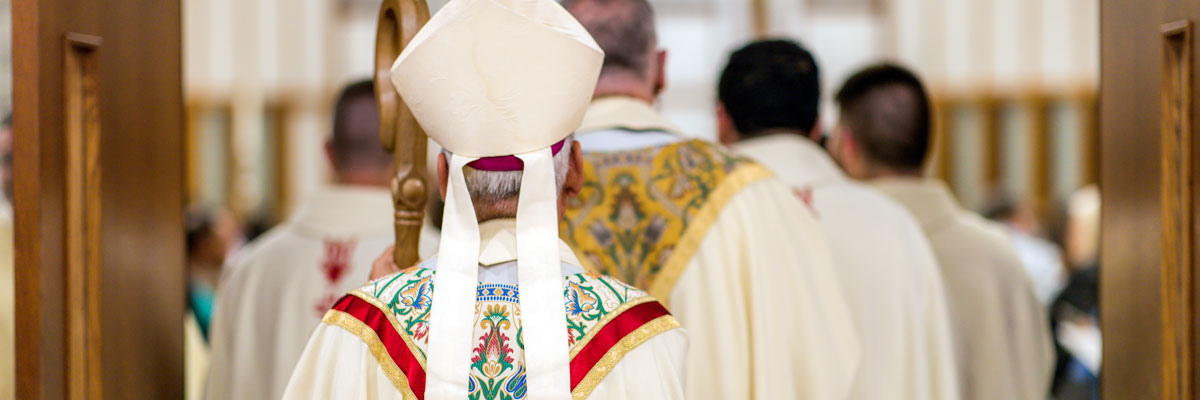Official Website of the
Catholic Diocese of Little Rock
Deacon Ordination of John Paul Hartnedy
Published: May 19, 2022
Bishop Anthony B. Taylor preached the following homily at St. Edward Church in Little Rock on Thursday, May 19, 2022. It is based on Jeremiah 1:4-9.

Bishop Taylor
We have two ordination ceremonies for transitional deacons this spring. Today we ordain John Paul to the diaconate and next week we will ordain Nathan Ashburn, and both John Paul and Nathan chose Jeremiah 1:4-9 for their first reading, which begins: “Before I formed you in the womb I knew you, before you were born I dedicated you, a prophet to the nations I appointed you.”
I would like to comment on this reading today and note that while this is John Paul’s, ordination, what I have to say applies to everyone in holy orders — including the 46 permanent deacons that I will ordain next month, and José Jaime Nieto and Daniel Wendel who I will be ordaining to the priesthood in just nine more days.
“Before I formed you in the womb I knew you, before you were born I dedicated you, a prophet to the nations I appointed you.” Here Jeremiah is saying basically two things: 1.) His vocation is at God’s initiative, not his own initiative. It is part of God’s plan and indeed, it was for that very purpose that he was even born; and 2.) Jeremiah’s mission within that plan was to be a “prophet to the nations.”
John Paul, whether you knew it or not, the Lord has had plans for you from before you were ever born. In that sense he has called you from your mother’s womb, and like Jeremiah, you have said: “yes.”
And both of these are true not only for Jeremiah, but also for anyone whom the Lord calls to public ministry in the Church.
1.) John Paul — and all the rest of you who are already ordained or whom I will ordain in the future — holy orders is not a career. It is a vocation. People choose a career but a vocation is chosen for us by God. People choose a career, but God chooses a person. People try to figure out what walk of life best suits them, what they think will promise the most happiness or even the most prosperity. They may do a cost-benefit analysis or take an aptitude test to help them choose the career that best suits them.
But discerning a vocation is not like that. A vocation is a calling. At issue is not what we want, but rather what God wants. God chooses, God calls and like Jeremiah, our only choice is whether to say “yes” or to say “no.” The initiative is from God and therefore, John Paul, his choice of you for the diaconate and eventually the priesthood had already been made well before you were ever formed in your mother’s womb. Like with Jeremiah, it was for this very purpose that you were even born.
2.) And what specifically was that purpose? To be “a prophet to the nations.” The Lord says: “To whomever I send you, you shall go; whatever I command you, you shall speak.” A prophet is a messenger from God, kind of like an angel, but rooted in the human condition. Sometimes that message may refer to the future, but usually it is a message that will comfort the afflicted and afflict the comfortable.
Bring healing to the broken hearted and call sinners to repentance. And as a deacon you become a minister of God’s word in the Gospel you proclaim, in the homilies you preach, and in the way you live your life. God’s message in our reading reassures us: “Do not be afraid of them, for I am with you to deliver you.” But that does imply that there are challenges to face in doing God’s will and proclaiming God’s sometimes unpopular truth. Jeremiah reminds us that the only one we really have to please is the Lord.
John Paul, whether you knew it or not, the Lord has had plans for you from before you were ever born. In that sense he has called you from your mother’s womb, and like Jeremiah, you have said: “yes.”
This is not your doing, it is the Lord who calls you and forms you and today ordains you a deacon for his service, and God willing, next year as a priest.








